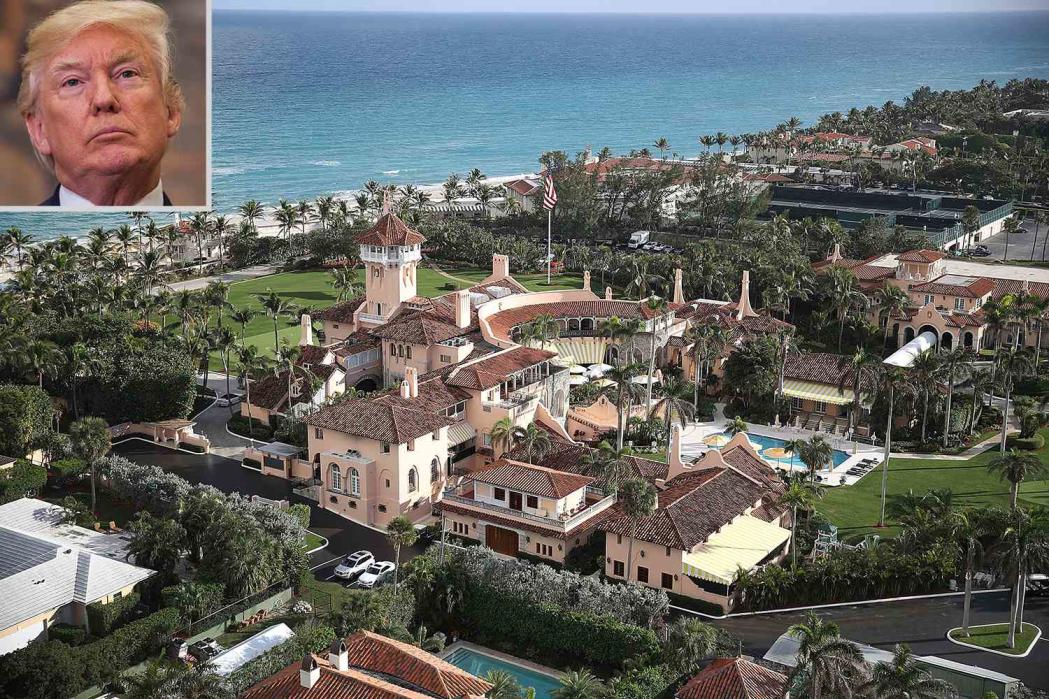Trump Says the FBI 'Stole' His Passports During Mar-a-Lago Search, Offering Misleading Account of Events

Joe Raedle/Getty. Inset: Zach Gibson - Pool/Getty Mar-a-Lago Club in Palm Beach, Florida. Inset: Donald Trump.
One week after the FBI's recent search of the former president's Mar-a-Lago home, Donald Trump is accusing the agency of "stealing" his passports.
"Wow! In the raid by the FBI of Mar-a-Lago, they stole my three Passports (one expired), along with everything else," Trump wrote on his website Truth Social on Monday. "This is an assault on a political opponent at a level never seen before in our Country. Third World!"
The FBI acknowledged it had taken the passports — two of which were reportedly expired and a third that was a diplomatic passport, similar to those all presidents receive — though a Justice Department official told outlets including NBC News on Monday that the passports had been returned to the former president.
The agents who searched Mar-a-Lago, however, did not "steal" anything, instead searching the residence using a search and seizure warrant, which was signed by a judge and unsealed last week by the U.S. District Court for the Southern District of Florida.
An inventory of the items taken in the search shows 11 sets of classified documents. Some were marked as top secret, which the Wall Street Journal notes should only be available in special government facilities.
Among the many boxes of items taken were binders of photos, an unspecified handwritten note and the executive grant of clemency for former Trump aide Roger Stone. The three-page list of items also showed that information about the president of France was collected.
The receipt was signed by Trump attorney Christina Bobb.
Never miss a story — sign up for PEOPLE's free daily newsletter to stay up-to-date on the best of what PEOPLE has to offer.
Politico reports that the warrant reveals the FBI is investigating Trump for "removal or destruction of records, obstruction of an investigation, and violating the Espionage Act." Conviction of those statutes, notes the outlet, "can result in imprisonment or fines."
Later on Monday, Trump said there was "no way to justify" the search, which he called a "RAID," calling on the FBI to release the entire affidavit and adding: "the Judge on this case should recuse!"
The Justice Department opposes unsealing the affidavit, saying in a filing it contains sensitive information regarding witness testimony.
Trump and his allies have used a number of defenses to justify why top-secret documents could have been at Mar-a-Lago, at times claiming the FBI "planted" evidence, and at other times claiming the former president had issued a standing order to declassify documents while he was in office.
While presidents can declassify documents when in office, they must go through a formal process in order to do so (and it remains unclear if Trump undertook that process to declassify the documents in question).


